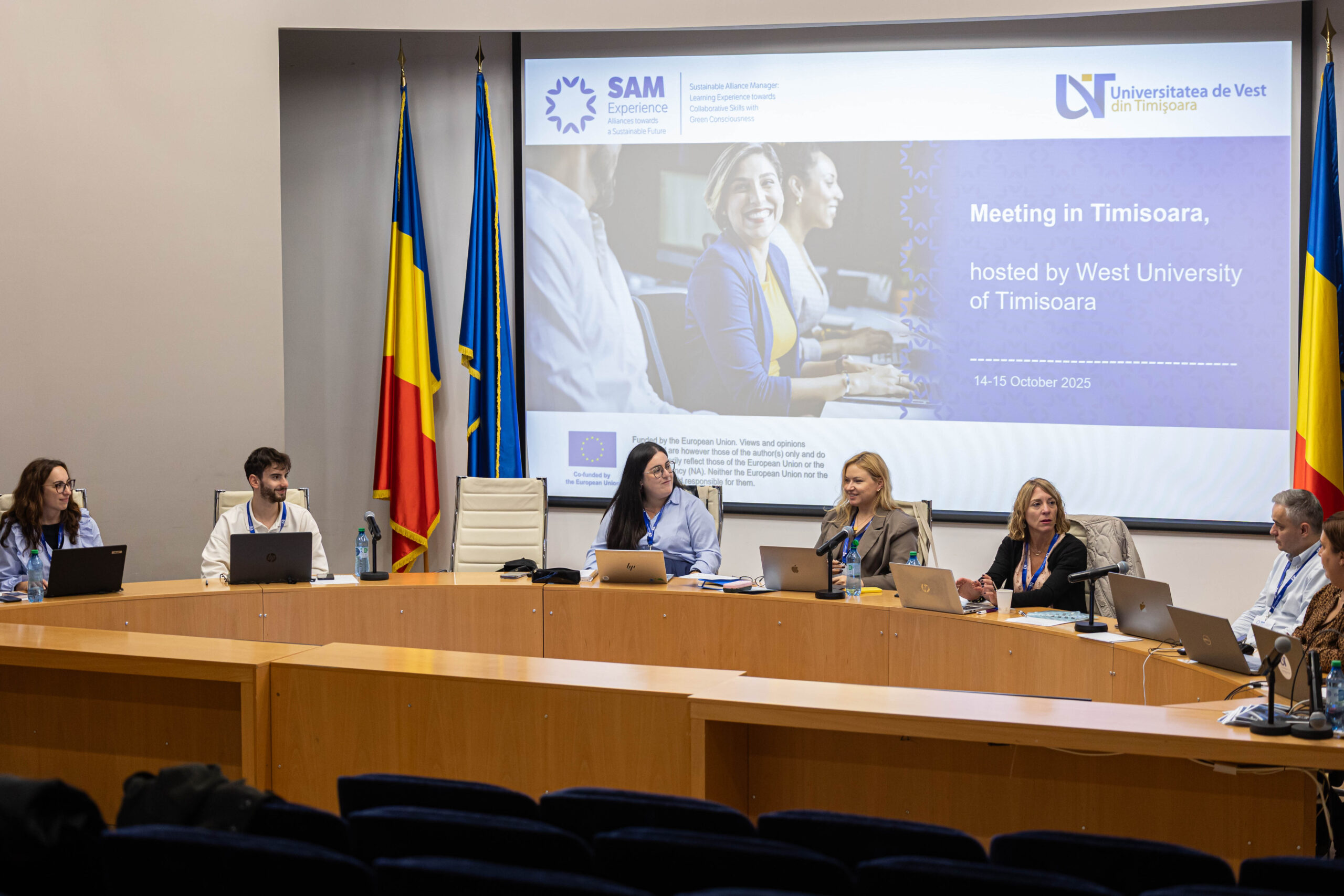
Assessment Centre methodology for the development of the Sustainable Alliance Manager profile
Assessment Centre methodology is considered a unique tool for identifying key competencies of employees. Extensive Literature Review suggests that assessment centers are a globally valid and reliable method to analyze and predict future potential of the professionals of the future.
Considering the short term objective of the SAMExperience project, to develop an international, digital, flexible and personalised learning experience for Sustainable Alliance Managers (SAM), the Assessment Centre methodology is the base of our Work Package 4- Learning Experience Piloting: Assessment Centre & Learning Paths.
During our last face to face meeting we were working in the definition of the criteria for the generation of key outputs of this work package that uses strategically inputs from WP2 and WP3:
- Design and development of the Assessment Center based on the inputs from WP2 (skills profile of Sustainable Alliance Manager)
- Digitalization of the Assessment Centre activities and the control panel for results processing and measurement and generation of the Learning Paths
- Validation of the Assessment Centre methodology and, if any, implementation of potential improvements (piloting of the Assessment Centre).
- Validation of the efficiency and adequacy of the full Learning Experience: designed in WP3, and implementation of potential improvements, if any.
Between the decisions that were taken, most important decisions were:
- To manage the Assessment Centre in an autonomous manner.
- To include 6 different types of activities in the process.
- To use Mudle as a digital tool to upload contents and manage the assessment center and learning paths.
- To provide individual feed-back about the level of each competence and the learning path recommended for their development.
- To identify the characteristics of the student target that are going to take part in the Assessment Centre and the learning paths for the skills development.
- To include 12 real companies’ challenges.
It is important to highlight the significance of this WP to finally test and fully develop the tool that will allow to reduce the skills mismatches of SAM: it provides self-assessment of the current skills level of students, compares it with the ideal one and offers personalised development itineraries (Learning Paths), according to the result obtained by each person to improve skills level by level and get closer to the desired profile of SAM.
That is going to be the way to reach not only the short term objective of the SAMExperience project, but also to reach the long term one: to provide professionals with the necessary collaborative and green skills to create and manage sustainable alliances within SMEs in the manufacturing sector.
Written by Mondragon Unibertsitatea (MUE), Spain

